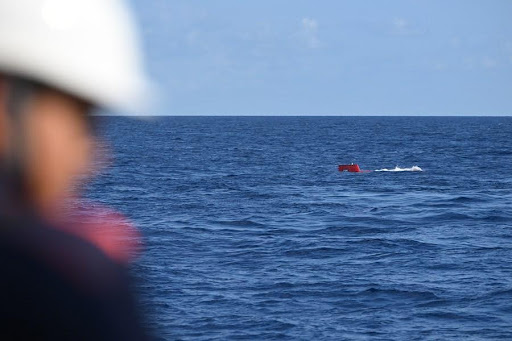By Koh King Kee
Recently, countries like the United States (U.S.) and the Philippines have been fueling fire on the South China Sea issue.
On April 11, the leaders of the U.S., Japan and the Philippines held a trilateral summit in Washington and issued a Joint Vision Statement after the summit, smearing and attacking China on the South China Sea issue.
Besides, the U.S. and the Philippines carried out joint military exercises in the South China Sea, and the U.S. has deployed the Mid-Range Capability missile system, also known as Typhon, in the Philippines.
These moves have escalated tensions in the South China Sea, further complicated the situation, and posed grave threats and dangers to regional peace and stability.
The U.S. has been frequently building exclusive blocs in the Asia-Pacific region, including its attempts to strengthen the Quadrilateral Security Dialogue (Quad) among the U.S., Japan, India and Australia, advance the AUKUS security partnership among the U.S., the United Kingdom and Australia, and host the U.S.-Japan-South Korea trilateral meeting at Camp David and the U.S.-Japan-Philippines trilateral summit.
The intention is to further its geopolitical interests in the region and contain China’s development. Such attempts by the U.S. and some of its allies to create division and confrontation in the South China Sea have raised concerns among ASEAN nations.
Under the instigation of external powers, certain Philippine politicians have been actively engaging in reckless confrontations and provocations in the South China Sea in disregard of the interests of their nation and people. Such acts serve no purpose other than undermining the joint efforts of regional countries in addressing the South China Sea issue and will ultimately damage the long-term interests of the Philippines.
The South China Sea issue should be resolved by countries directly concerned through dialogue and negotiation. The intervention of external forces only complicates the situation and hinders the resolution of the South China Sea issue.
The Declaration on the Conduct of Parties in the South China Sea (DOC), signed by China and the ten ASEAN countries in November 2002, is a milestone in the dialogue relations between ASEAN and China. It reflects the shared aspirations of ASEAN countries and China to maintain peace and stability in the South China Sea and is instrumental in stabilizing the situation in the South China Sea.
The countries involved in the South China Sea issue should adhere to the principle of the DOC, exercise restraint, and avoid any actions that could complicate or escalate disputes.
ASEAN has always stayed independent and self-reliant, believing that its own affairs should be decided by ASEAN itself. ASEAN countries value their stable and sound relations with China, advocate for jointly promoting peace and stability in the region, and pursue win-win outcomes through cooperation. ASEAN is neither willing nor likely to participate in any U.S.-led exclusive blocs aimed at confronting China simply to please the U.S.
The South China Sea issue should not be exaggerated. As long as dialogue and consultation are maintained and differences are handled properly, the issue is not insurmountable. In October 2023, China and ASEAN announced the start of the third reading of Single Draft Negotiating Text of the Code of Conduct (COC) and agreed to accelerate negotiations so as to reach at an early date an effective and substantive COC that is consistent with international law.
ASEAN countries and China should work together to actively promote negotiations on the COC, strengthen cooperation on marine fisheries, scientific research, ecology, and security, and build the South China Sea into sea of peace, friendship and cooperation.
(Koh King Kee is president of the Centre for New Inclusive Asia, a Malaysian think tank)













